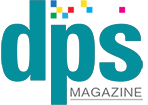Current Articles 383
Art for Science
Transit graphics are often purchased by big brands to promote a marketing message. However, the Cool Science project...
Mission-Critical MIS
Print management information systems continue to evolve beyond the traditional intuition, moving into enterprise resource planning territory.
Engaging Customers
Do less with more—it’s a current trend. So it makes sense that some of the newest introductions...
Drupa 2024 Recap
This Spring, the print industry focused its attention to Drupa, which took place from May 28 to June 7, 2024.
Attractive Sustainability
When it comes to being eco-conscious, reinventing how and what products are used in a print shop isn’t necessary.
Automation in Finishing
Automation is increasingly essential to print providers. This is especially true for digital or hybrid print environments looking to reduce human...
Diverse Toner
Toner-based devices with production-level capabilities present advantages for many businesses...
The Right Candidate
Print shops build their businesses around steady work, regular requests that are often scheduled ...
Print Franchise Achieves Rapid Return
In little over a month, after partnering with Significans Automation, Bozeman, MT-based Allegra Printing, a full-service printing...
Monochrome Options
Toner-based production presses provide endless capabilities for commercial print shops. With both color and monochrome ...
Drupa: Pre-Show Coverage
The print industry convenes once again for Drupa, taking place May 28 to June 7, 2024 in Düsseldorf, Germany.
Competing in Cutsheet
Cutsheet inkjet production presses continue to advance, complementing and competing with mature technologies like offset and toner-based production devices.
Channel Access
News
07.10.2025 Fiery, LLC, the print industry’s leading innovator of digital front ends...
07.10.2025 Today Melissa brings its powerful data quality engine ...
07.10.2025 Asahi Photoproducts, a pioneer in flexographic photopolymer...
07.10.2025 Komori America is proud to share Komori Corporation’s...
07.08.2025 Nobelus, a long-time supplier of thermal laminating systems...
Web Exclusive
The connotations associated with wallpaper range from something antique you might have...
Key players in digital production offer security printing features with their flagship solutions.
Print-for-pays, in-plant and reprographic houses...
Recent flatbed announcements from several vendors included upgrades in print speed...
Print inspection systems are essential for industries where flawless print quality and stringent traceability are non-negotiable.



